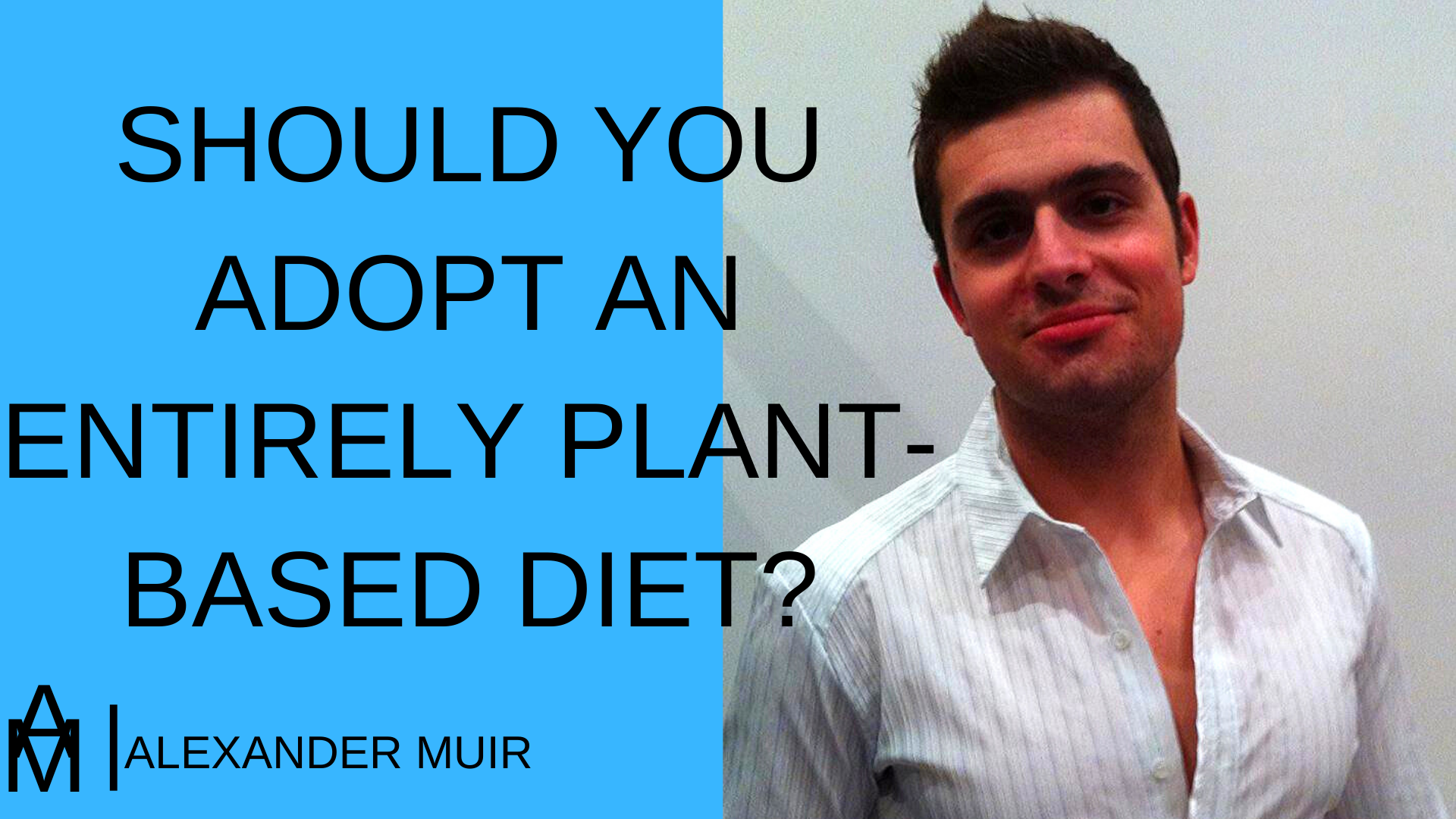You may have heard of people advocating for plant-based, vegan, or vegetarian diets recently. Are these diets just a fad, or is there some substance behind their science? Do people really perceive more energy overall? Or are there just temporary spikes and drops in energy? I have done some research on academic articles pertaining to veganism/vegetarianism, and going entirely plant-based is not something I would recommend doing for a prolonged period of time.
CANADA’S TRANSITION TO A PLANT-BASED FOOD GUIDE
I have found recent information regarding the transition to plant-based diets. At the end of January 2019, Canada’s health food guide altered their guide from suggesting a diet rich in meat, dairy products, whole grains, and vegetables, to a plant-based diet comprised of predominantly vegetables, legumes, whole grains, and supplemented microdoses of meat, poultry, and seafood. Although I am always open to trying different nutrition strategies that will improve my health, I was very skeptical of a “plant-based diet” plan.
Every time I would hear the word plant-based, I would immediately think: weak, frail, thin, energyless, no muscle when people would talk about plant-based diets in conversation or online. Another misconception with a plant-based diet I have had for years is that most people that go plant-based, whether partially or entirely, end up eating just veggies.
MISCONCEPTIONS OF A PLANT-BASED DIET
This is not true according to the USA National Kidney Foundation, “most experts agree that having some meat, fish, poultry, or dairy in small amounts is healthy” (National Kidney Foundation, 2019). I don’t agree with going completely plant-based, here’s why.
Although I tested a plant-based diet for approximately 30 days a few months ago and I did develop more energy, eating too many legumes gave me horrendous gas. My gut is still too adjusted to eating meat, dairy, and poultry for all these years. Despite using a probiotic during this time as well, it only helped a little.
Is it necessary to go entirely vegan or entirely vegetarian? Nope. As stated by Katherine D. McManus, “Vegetarian diets come in lots of shapes and sizes, and you should choose the version that works best for you” (McManus, K. D., 2018). Although I did not stick to my vegan chili diet for long, I did enjoy the convenience of getting in all my nutrients in 1 meal.
Over the course of my 30-day experiment, I made tons of vegan chilis and ate more vegetables than I could count. This to me was the plus side of incorporating more plant-based foods into my diet, increasing my overall veggie intake.
I would consider the flexitarian diet to be the most sustainable long term if someone wishes to really sink their teeth into more eggplants. A flexitarian diet is doable because it still allows you to consume eggs, meat, dairy, poultry, and seafood. The rigidity of going vegan or vegetarian was too much for me to muster.
GASTROINTESTINAL DISCOMFORT WITH PLANT-BASED DIET
I mean, we can’t overhaul our diets overnight, so this begs the question, why do legumes cause such gastrointestinal discomfort? Too much excess fiber, and particularly eating beans, “while it won’t completely go away, gas and bloating should subside after a couple of weeks” (Your Super Foods Inc, 2019). A couple of weeks? Are you tooting me? I had tremendous gas well over a few weeks.
If you’re deciding to transition to a plant-based diet, you’re warned… gas and bloating will become a regular part of your routine.
MY FINAL THOUGHTS ON GOING PLANT BASED
For those interested in going plant-based, the transition will take time. A plant-based diet plan is something that is still so new and has been rarely talked about in the past because savvy meat marketing has been ingrained in most of us since birth.
Plant-based diets are becoming more mainstream in our society today because of the public’s access to infinite information. Consumers are becoming more aware of the foods they choose to eat and are much more educated on what they should be eating. With this new-found knowledge, people are more open to trying plant-based diets.
I love that there are so many resources to improve our health and wealth in our lives, but people also need to be aware diets are temporary and don’t generally last long term. I enjoyed testing a plant-based diet but I will not stick with it for the long haul. People’s existing gut bacteria can be a major pitfall in sustaining plant-based eating, “Many healthy plant-based foods such as avocado, cauliflower, beans, garlic and onions are also high in FODMAP content” (Desmond, Dr. A., 2019).
FODMAPS are short carbohydrates found in healthy foods, too many can cause “excess fermentation, digestive gas and bloating” (Desmond, Dr. A, 2019). Those foods are just to name a few that can create smelly gas and bloating but you get the picture, try plant-based but don’t do it forever, your gut will thank you.
List of References
Desmond, Dr. A., (March 6, 2019). The Gut? Health Pitfalls to Avoid On A Vegan Diet. Retrieved Dec 16, 2019 from https://www.plantbasednews.org/lifestyle/pitfalls-avoid-vegan-diet
McManus, K. D., (Sept 26, 2018). Harvard Health.What is a Plant Based Diet and Why should you try it?. Retrieved Dec 16, 2019 from https://www.health.harvard.edu/blog/what-is-a-plant-based-diet-and-why-should-you-try-it-2018092614760
National Kidney Foundation. (2019). Myths and Misconceptions about Plant-Based Diets. Retrieved Dec 11, 2019 from https://www.kidney.org/atoz/content/myths-and-misconceptions-about-plant-based-diets
Your Super Foods Inc. (2019). 5 Ways to Reduce Gas & Bloating On A Plant Based Diet. Retrieved Dec 11, 2019 from https://yoursuper.com/pages/gas-bloating-plant-based-diet

